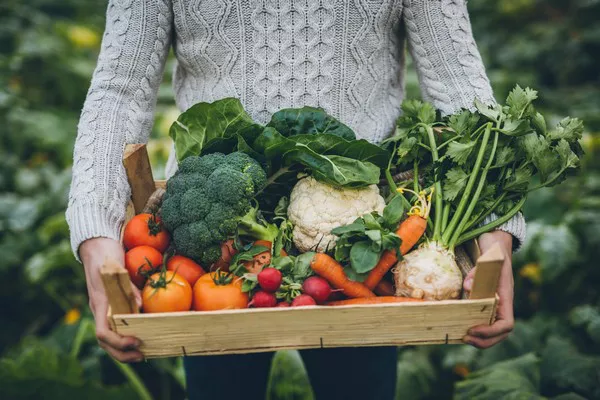In what is being described as one of the toughest harvests on record, fears are growing that Christmas dinner tables across the UK might be missing some traditional must-haves due to severe weather conditions affecting farmers.
The Fresh Product Journal reports that storms wreaking havoc have led to an anticipated record-low yield of 4.1 million tonnes for the UK’s recent potato crop. Retailers are being compelled to supplement supplies from cold storage to meet demand.
The harvests of broccoli and cauliflower have also taken a hit, potentially leading to empty shelves in supermarkets. While festive favorites such as sprouts and parsnips have also suffered, experts expect the supply to recover sufficiently to meet the demands of Christmas plates.
Unprecedented levels of rainfall, nearly double the October average, exacerbated by storms like Agnes, Babet, and Ciarán, have left farms waterlogged, severely impacting vegetable production for the holiday season.
Martin Tate, a Lincolnshire grower managing 18,000 acres in the county, expressed concerns, stating, “There won’t be enough broccoli to supply the Christmas dinner demand. There is a nationwide shortage of broccoli; in fact, there’s a European-wide shortage. Cauliflower is still a problem, and you can expect to see empty trays over the next few weeks, but they may return to normal before Christmas. After some initial issues, Brussels sprout supplies look like they will be okay.”
Despite these concerns, the British Retail Consortium (BRC) reassures the public that retailers are adequately prepared to meet festive demand. Andrew Opie, Director of Food and Sustainability at the BRC, said, “High rainfall has created challenging conditions for farmers in the UK; however, food retailers are adept at managing disruption and have all the vegetables, potatoes, and other festive foods households need for a great Christmas.”
In related news, there were recent reports suggesting that duck and other game birds may be scarce on Christmas menus. Processing these seasonal favorites is becoming more expensive as suppliers struggle to find skilled staff.
Approximately 55 million pheasants and partridges, along with 2.6 million mallard ducks, are reared annually in captivity before being released into the wild for sport shooting and eventual processing for food. However, a shortage of skilled pluckers in rural areas is making the processing of these birds increasingly challenging.
The Department for Environment, Food and Rural Affairs has commissioned a review of labor shortages in the food supply chain to address these concerns. Last Christmas, bird flu led to the loss of 600,000 out of 1.3 million free-range birds available, prompting retailers to receive permission to thaw and sell them as “defrosted” rather than fresh, according to the British Retail Consortium.
The impact of these challenges on Christmas dinner tables remains uncertain, but the industry and regulators are actively addressing the issues to ensure a festive season with an abundant and varied menu for consumers.

